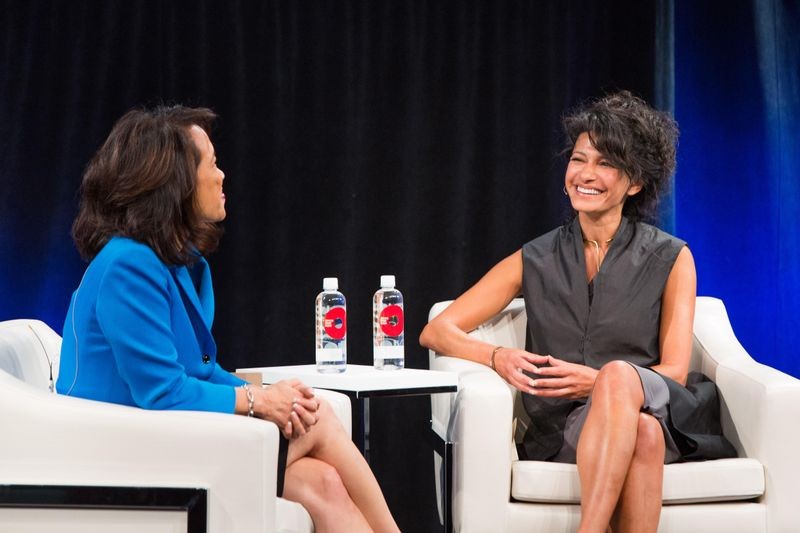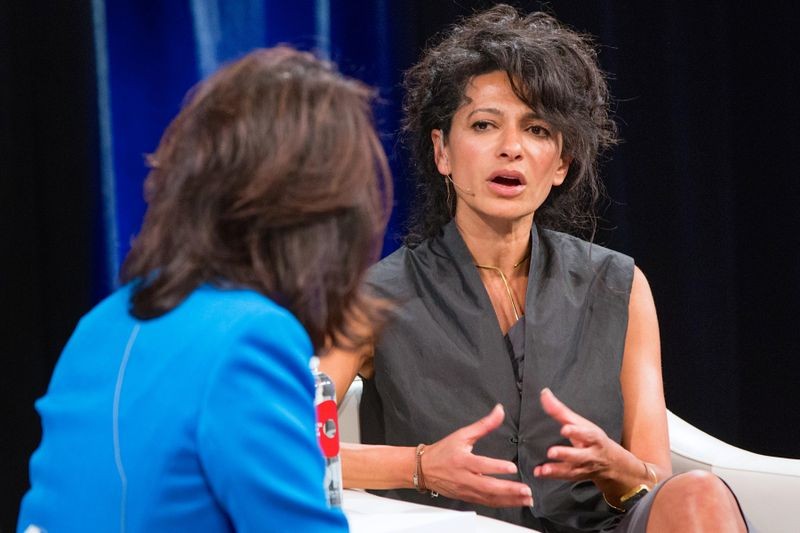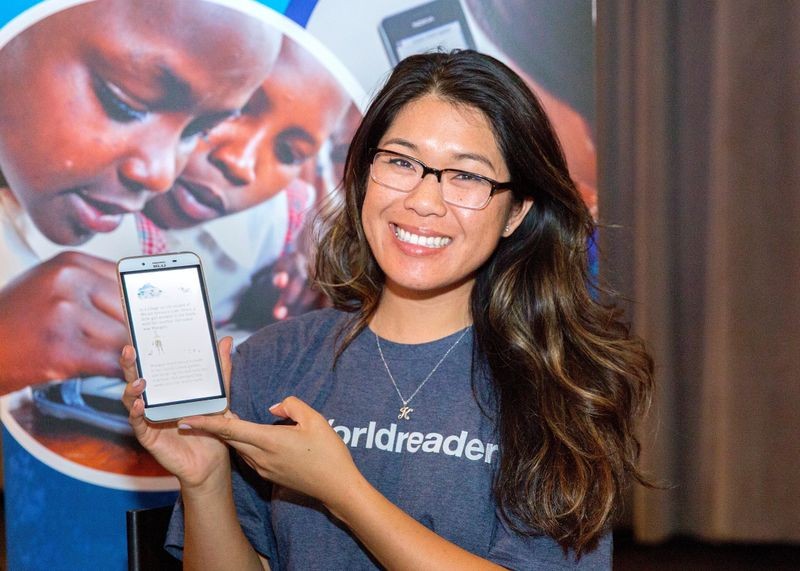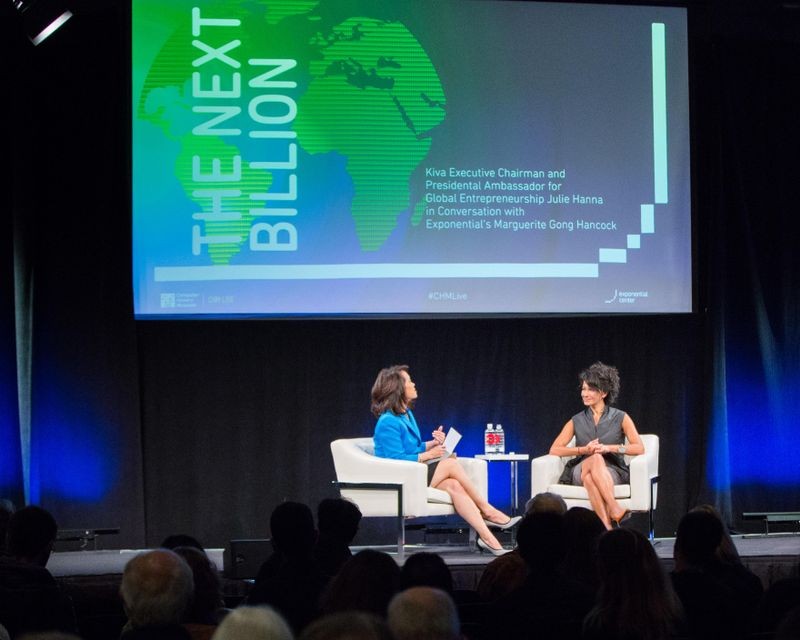

CHM Live’s “The Next Billion: A Conversation with Kiva Executive Chair Julie Hanna,” November 16, 2016. Produced by the Exponential Center at the Computer History Museum.
Among Silicon Valley entrepreneurs, talk of the next billion often conjures up visions of creating the next “unicorn” company, with private valuation that tops $1 billion. Technology innovation and economic valuation often go hand in hand. But what of social impact? A growing number of innovators and entrepreneurs are focused on the next billion–the billion people who are digitally excluded, many of whom live in extreme poverty, globally and locally. For example, since its first loan to a fishmonger in Uganda, Kiva, the world’s largest crowdlending marketplace for underserved entrepreneurs, has allowed people to lend money via the Internet to underserved entrepreneurs. Kiva has crowdfunded more than one million loans to more than 2.1 million entrepreneurs in 82 countries, totaling nearly $1 billion dollars with a repayment rate over 97 percent. On November 16, I was thrilled to have the opportunity to sit down for a fireside chat with the remarkable Julie Hanna to discuss, “The Next Billion.” The event was part of the Exponential Center series at CHM as well as Global Entrepreneurship Week held in 160 countries each November. Julie is a technologist, entrepreneur, investor, and advisor who works with purpose-driven companies aiming to solve humanity’s greatest challenges. She is executive chairman of Kiva, peer-peer lending pioneer and the world’s largest crowdfunding marketplace for underserved entrepreneurs. Serving in roles that range from founding executive to founder and CEO, Julie has pioneered products and led companies that have allowed millions of people to connect, communicate, and collaborate globally, including Healtheon (WebMD), onebox.com (Unwired Planet), Portola (acquired by Netscape), and open source innovator Scalix. In recognition of her vision and global impact on economic and social progress, Hanna was named the United States Woman Icon of APEC and is a recipient of the 2016 Global Empowerment Award. In 2015 US President Barack Obama appointed her a Presidential Ambassador for Global Entrepreneurship (archive.org link).
To introduce Julie, here are five key numbers:

I began the conversation with Julie by asking about the genesis of her life’s work. She shared, “I realized the most important difference as human beings is the access to opportunity.” Her journey to the front lines of the tech revolution began on the front lines of war. An Egyptian immigrant and refugee, her work is rooted in her belief that technology’s democratizing power can enable a more just and abundant world at mass scale.

Julie Hanna, Presidential Ambassador for Global Entrepreneurship, speaking for Exponential Center during Global Entrepreneurship Week
Throughout the course of the evening, Julie offered keen insights, cited current statistics on technology and demographic trends, and shared personal experiences with people from President Obama to a villager in Africa. Here is a sampling to whet your appetite.
Insert caption here..
Insert caption here..
As part of the evening, we featured demos by leaders from a handful of organizations impacting “The Next Billion” around the world:

Worldreader product demo at showcase of companies during “The Next Billion” networking

Julia Hanna and Exponential executive director Marguerite Gong Hancock in fireside chat
During our wide-ranging discussion, Julie shared her insights on other important questions, including: How are entrepreneurs changing the lives of the next billion? How is technology being used as a force for democratization of access and opportunity? Where are hot spots around the world for entrepreneurship and what can Silicon Valley learn from them? What are some positive roles for government? Is there a way to dismantle the false choice between purpose and profit?
CHM Live’s “The Next Billion”: A Conversation with Kiva Executive Chairman Julie Hanna”. Produced by the Exponential Center at the Computer History Museum...